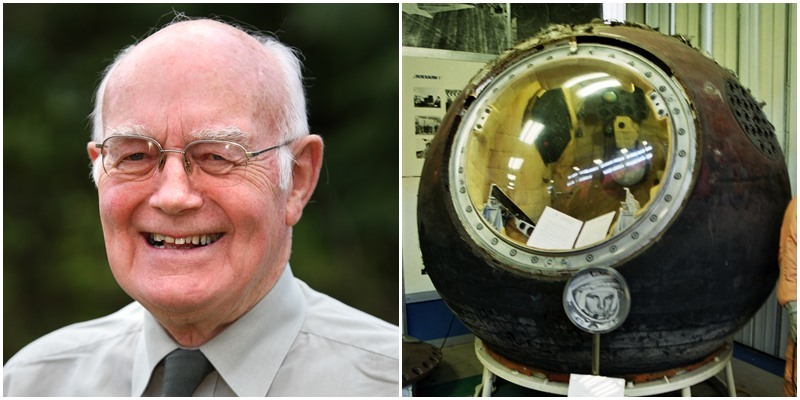The usually quiet streets of Communist Leningrad came alive 50 years ago today when news broke of the world’s first manned space mission and George McMillan was in the middle of the celebrations.
The former Perth Academy depute rector contacted The Courier to recount his memories of a day that went down in the history books.
Mr McMillan, now 79, and 30 other British students had been on a six-week tour of the Soviet Union when they came upon crowds in front of the Winter Palace in Leningrad (now St Petersburg).
Cut off from the outside world, none of the group knew of Yuri Gagarin’s successful orbit of the earth. But, Mr McMillan said, it was an excellent piece of propaganda for the Soviet government.
Gagarin (27) was launched into space on top of a 30 metre long booster at the Tyuratam test range in Kazakhstan (now the Baikonur Cosmodrome).
From a modest family, he was selected from 20 candidates.
“Thousands and thousands of people packed out the Palace Square that night it was a truly amazing sight,” he said. “There was a party atmosphere that you wouldn’t have expected in The Soviet Union at that time. Vodka was flowing and people were cheering and singing.
“Interestingly, the Russian people were the last to hear about the mission. Officials didn’t want to confirm it until they were sure Gagarin had survived.
“We came upon the celebrations almost by accident but our guides were more than happy for us to join in.’Great spirits'”I was just 29 at the time but I remember it as if it was yesterday. There was a real crush and it was very airless but everyone was in great spirits. They were so proud for their country.
“Someone had even painted “Nyet Boga. Yestch Gagarin!” on a large wall, which means There is no God. There is Gagarin!”
Mr McMillan, a former Reuters correspondent who was originally from Dundee and stays in Perth, travelled around western Europe in his 20s.
Mr McMillan was given a chance to visit the Soviet Union when he finished a teacher training qualification in Dundee, and says it was a “real eye opener.”
He said, “Very few images came out of the Communist countries at the time, so it was a bit of a mystery to me. I spoke a bit of Russian but really didn’t know what to expect.
“When the train passed through from West Germany to East Germany the contrast was shocking. People were very poor and there were always long queues outside food stores an image that has stayed with me.”
He said many of the people he met were fans of Scottish music and the poetry of Rabbie Burns, so when he returned to Dundee he posted them books and albums and they sent him traditional Russian music in return.
Weeks after his return, Mr McMillan began working as a French and German teacher at Morgan Academy in Dundee and made sure he told his students about his experience.
